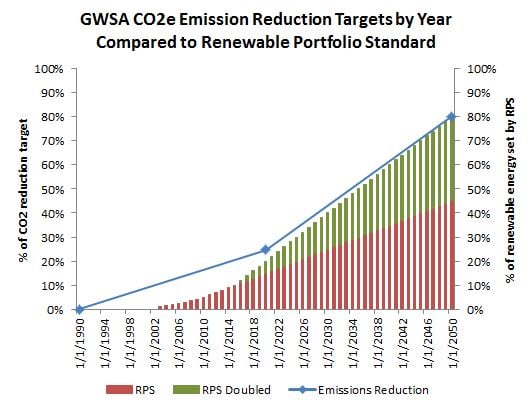House Omnibus Energy Bill Hits the Floor: Members expected to vote on Wednesday, June 8th
UPDATE: House passed its Energy Bill (H.4385) on Wednesday, June 8 by a vote of 154-1. The bill includes a...
UPDATE AS OF JULY 1, 2016
As expected, the Massachusetts Senate took up S.2372, An act promoting energy diversity, on Thursday morning. With over 100 amendments to consider, debate on the bill ran late into the evening. But, when it was all said and done, Senate lawmakers unanimously passed a comprehensive energy bill that stands to bring a substantial amount of hydroelectricity and offshore wind into the region, incentivizes electric vehicles, addresses gas leaks, enhances energy efficiency, and protects ratepayers from paying for unnecessary fracked gas pipelines.
Updates on key ammendments listed in red below.
The bill now moves to conference committee where designees from the House and Senate will reconcile both versions before a final version is adopted and sent to the Governor to be signed.
Late last Friday, lawmakers in Senate Ways and Means released S.2372 – An act to promote energy diversity. Similar to the House bill that passed recently, this Senate bill addresses the purchase of large amounts of hydroelectricity and offshore wind. However, S.2372 does even more to promote clean energy in the Commonwealth. Here is a quick breakdown.
Both bills direct utilities to enter into long term contracts for large amounts of hydroelectricity and offshore wind. In the House bill, H.4385, this amounts to about 1200 MW each of offshore wind and hydro procured either by itself or in combination with RPS Class I eligible resources like onshore wind. In the Senate version, the offshore wind procurement is larger – 2000 MW by 2030. The hydro procurement is also larger – approximately 1500 MW – BUT can be met either by the purchase of hydro alone, hydro in combination with RPS Class I resources, or RPS Class I resources on their own.
The Senate bill would raise the annual increase in the state’s Renewable Portfolio Standard, or RPS. This is a requirement that electricity suppliers meet a certain percentage of their electricity supply with new, renewable resources. In 2016, that amount is 11% and it is currently required to increase 1% per year. S. 2372 would increase that incremental change from 1% per year to 2% per year. Mass Energy strongly supports this change because it will help our state meet the greenhouse gas (GHG) emission reductions required by the Global Warming Solutions Act (GWSA) at a faster pace.

Other highlights from the Senate bill include the procurement of energy storage and the establishment of a home energy rating and labeling system that would help homebuyers know how efficient the property they are looking to buy actually is.
Even with several new and good provisions, S.2372 fails to address gas leaks and the prohibition of gas pipeline infrastructure paid for by electric customers. Fortunately, amendments have been filed to address these two key issues, as well as a number of others that would further improve the bill.
Prohibit ratepayer financing for unnecessary fracked gas pipelines.
We are hopeful that Amendment 1 filed by Senator Jehlen will be adopted. It expressly prohibits the Department of Public Utilities (DPU) from approving long term contracts by electric utilities for natural gas capacity. Without this prohibition, and absent a ruling from the Supreme Judicial Court, we expect that the DPU will approve such a “pipeline tax.”
Action: SUPPORT AMENDMENT #1: Protecting ratepayers from unwarranted taxation (by Sen. Jehlen, D-Somerville) – Update: ADOPTED unanimously, 39-0
“Massachusetts ratepayers should not be subsidizing the corporate bottom line,” said Senator Pat Jehlen (D-Somerville). “Residents from all over the Commonwealth came together, reached out to my colleagues and I, and told us that they did not want to be responsible for shielding electric companies from risk by paying for the construction of gas pipelines. The passage of this amendment speaks volumes about the power of community advocacy and our constituents’ ability to impact policy. I’m very proud that the Senate took strong action to protect ratepayers in our state from subsidizing the corporate bottom line and hope that it is adopted in the final conference committee report.”
Fix natural gas leaks & promote worker safety.
Our gas distribution network is old and emitting high levels of methane every day. Consumers are stuck paying for this lost gas, a significant contributor to our greenhouse gas emissions. This is expensive (~$90M/year in Greater Boston, alone!), potentially dangerous to residents and businesses, and poses a threat to the environment. For the sake of public and environmental health and safety, fixing gas leaks is imperative. Amendment 65 filed by Senator Eldridge will accelerate the pace of repairs and also includes provisions to address worker safety.
Action: SUPPORT AMENDMENT #65: Gas Leaks Repairs II (by Sen. Eldridge, D-Acton) – Update: WITHDRAWN, but Amendment #64, refile of the House gas leaks language, was ADOPTED
Facilitate ownership of electric vehicles.
 Mass Energy has written a lot about the importance of electric vehicles in ratcheting down emissions in Massachusetts. Not only does driving an EV produce fewer emissions than a conventional vehicle, but operating an EV costs less per mile than a conventional car. Advances in technology and declining prices also make EVs a win-win solution for the environment and for consumers. Amendment 68 filed by Senator Eldridge encourages the planning for and use of Zero Emission Vehicles by allowing them to be driven in HOV lanes, allowing for the installation of charging stations, and allowing communities to designate parking areas for electric vehicles.
Mass Energy has written a lot about the importance of electric vehicles in ratcheting down emissions in Massachusetts. Not only does driving an EV produce fewer emissions than a conventional vehicle, but operating an EV costs less per mile than a conventional car. Advances in technology and declining prices also make EVs a win-win solution for the environment and for consumers. Amendment 68 filed by Senator Eldridge encourages the planning for and use of Zero Emission Vehicles by allowing them to be driven in HOV lanes, allowing for the installation of charging stations, and allowing communities to designate parking areas for electric vehicles.
Action: SUPPORT AMENDMENT #68: Zero Emission Vehicles (by Sen. Eldridge, D-Acton) – Update: ADOPTED
Mass Energy also OPPOSES the following amendments because despite their benign titles, they seek to undermine Massachusetts’ efficiency programs or would set the state back in its efforts to replace fossil fuel generation with clean, renewable resources.
The Senate will vote on the bill on Thursday, June 30, which means there is still time for you to contact your elected official. Thank your senator for working hard to advance clean energy in Massachusetts and urge them to support the amendments that will keep Massachusetts moving forward and to reject the ones that will set us back.
And stay tuned. Follow us on Twitter and Facebook for status updates as the bill progresses on Thursday. Visit our advocacy page to learn more about how Mass Energy is working to make energy affordable and environmentally sustainable.
UPDATE: House passed its Energy Bill (H.4385) on Wednesday, June 8 by a vote of 154-1. The bill includes a...
Late Sunday (July 31) night the Massachusetts Legislature passed H.4568, paving the way for the country’s largest...
Comments